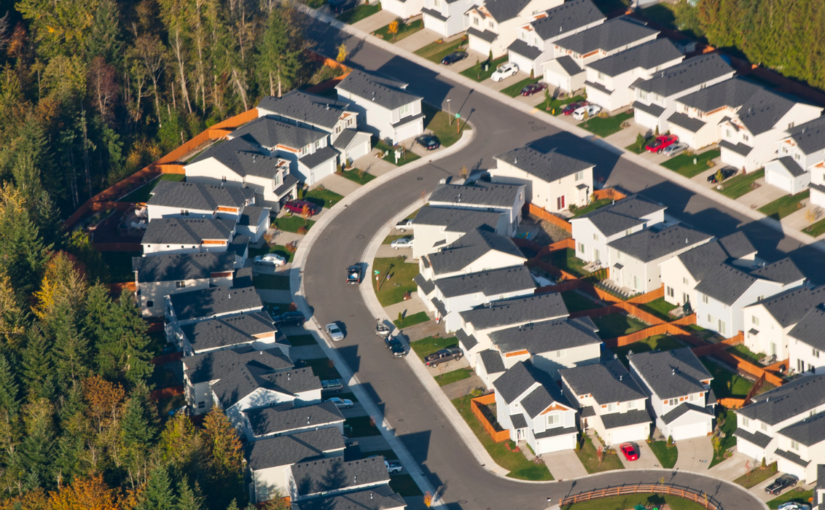back
The Impact of Zoning on Property Values and Real Estate Investment
03-2023

Zoning is an important component of real estate development that can have a big effect on home values and real estate investment. It speaks about the rules and laws that control how land is used in a certain place. Zoning is primarily used to maintain separation between different land uses and to guarantee that land use is compatible with the environment. We shall investigate how zoning affects real estate investment and property values in this blog.
Zoning Laws and Regulations
Usually implemented by local governments, zoning laws and restrictions differ from city to city. Land is divided into a variety of groups, including residential, commercial, industrial, agricultural, and recreational. The amount of space that can be set aside for parking, open areas, and public use are all determined by zoning restrictions, along with how the property can be utilized and what kinds of buildings can be built there.
Impact of Zoning on Property Values
Property values are greatly influenced by the zoning type in a given location. Due to the calm and tranquil atmosphere of the neighborhood, residential zoning, for example, is frequently linked to high property values. Families with children are particularly drawn to it because it is also often thought to be a safer environment.
Commercial zoning, on the other hand, tends to lower the value of nearby properties. This is due to the fact that businesses frequently contribute to noise, pollution, and traffic congestion, all of which can impair the quality of life for people living nearby. In a manner similar to that of commercial zoning, industrial zoning likewise affects property values. Residential property buyers find it less alluring because of the frequent associations with noise, pollution, and traffic.
The kind, size, and caliber of buildings that can be erected in a given location are all governed by zoning, which also has an impact on property prices. It could be difficult to find high-rise apartment complexes or condominiums, for instance, if zoning laws only allow single-family residences. As a result, the neighborhood may experience a housing scarcity, which will raise demand and raise the value of nearby properties.
By protecting a region’s natural environment or historic structures, zoning may in some situations raise property prices. A picturesque environment that appeals to customers looking for a natural setting, for instance, might be created when zoning restrictions forbid development in a certain area due to its biological importance. In a similar vein, because there are so few of these kinds of properties, protecting historic structures by zoning laws may actually boost their value.
Impact of Zoning on Real Estate Investment
A lot can be changed by zoning in terms of real estate investment. Investors frequently check the zoning restrictions before buying a property to make sure it is designated for their planned use. An investor might search for a property that is zoned for commercial use if they wish to build a commercial property, for instance. In a similar vein, a developer looking to create an apartment complex will search for a site that is zoned for multifamily use.
A region’s level of competitiveness has an impact on real estate investment, and zoning regulations have a similar effect. The supply of available properties may be limited if zoning restrictions set limits on the number or kind of structures that can be built there, which could increase competition and possibly raise real estate prices. As a result, investing in real estate in certain locations may be more profitable.
On the other side, if zoning laws allow a lot of buildings to be constructed in a location, it may increase the supply of buildings, which could lower property values and make real estate investment less appealing. Under such circumstances, investors can search for different regions with more stringent zoning laws.
By affecting the level of risk attached to a property, zoning can also have an impact on real estate investment. It might lower the risk of pollution or environmental harm, for instance, if zoning restrictions forbid the use of a property for a particular use, such industrial use. Investors who are worried about environmental liability may find the property to be more alluring as a result.
Real estate development is heavily influenced by zoning, which has an effect on investment potential and property values. The use of land, the kind, size, and quality of buildings, as well as the degree of competition in a given location, are all governed by zoning rules and regulations. A location’s zoning scheme may have a positive or negative impact on the value of nearby properties. Property values often rise when a neighborhood is zoned as residential, while they fall when a neighborhood is zoned as commercial or industrial. By affecting the level of competitiveness and risk connected with a property, zoning restrictions can also have an impact on real estate investment. For property purchasers and investors to make wise investment decisions, they must have a thorough understanding of zoning laws.
F2H Capital Group is a debt advisory firm specializing in negotiating the best terms for your commercial real estate projects. The company offers a range of financial products and services, including fixed loans, bridge loans, and construction loans across all asset types. Please contact us for any of your financing needs.

